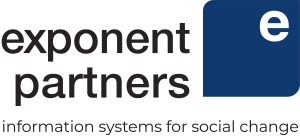Benefits of Data Governance for Nonprofits
In today’s world, data has become one of the most valuable assets for organizations. However, with the increasing amount of data comes the need for a clear plan that outlines expectations for how your organization will handle, input store and share data.. This is where data governance comes into play.
But why is data governance important? And what are the benefits of data governance for nonprofits?
In this article, we will explore the importance of data governance for nonprofits. We will also cover how organizations can implement effective data governance practices to ensure they are using data ethically, securely, and efficiently.
9 Benefits Of A Data Governance Strategy And Roadmap For Nonprofits
Data governance can benefit a nonprofit organization in a number of ways. Here are some of the most important ones that nonprofits can take advantage of:
1. Improved Data Accuracy and Quality
Ensuring that data is consistent, relevant, and reliable can help reduce errors and improve the accuracy of analyses and reports. By implementing a data governance strategy, your team can trust the data they’re working with. They can then take the right actions to drive your mission forward based on accurate information.
2. Better Data Security and Privacy
As in all industries, having proper policies for data protection is necessary for preventing data breaches and other security incidents. Data breaches can be catastrophic for nonprofits as they can result in financial losses, legal issues, and damage to their reputation. Nonprofits that do not have adequate data protection policies in place are vulnerable to cyber attacks and other security threats that can compromise the privacy and security of sensitive information.
3. Improved Decision-Making
A well-defined data governance strategy and roadmap can help an organization better understand its data, which in turn can lead to more informed decision-making. By ensuring that data is accurate, complete, and accessible, decision-makers can have greater confidence in the data-driven insights they rely on.
4. Compliance With Regulations
Nonprofit organizations are subject to a number of data privacy and security regulations, such as the General Data Protection Regulation (GDPR) and the California Consumer Privacy Act (CCPA). Effective data governance ensures that an organization’s data management practices are in line with applicable laws and regulations. This reduces the risk of fines, legal action, and reputational damage.
5. Increased Transparency and Accountability
Nonprofit organizations rely on the trust of their funders, donors and stakeholders. Here is a list of data governance practices to demonstrate your nonprofit’s commitment to responsible data handling.
Clear data ownership
Identifying who is responsible for collecting, storing, and managing data makes it easier to track the flow of information and ensure that it is being handled appropriately.
Data quality standards
Establishing data quality metrics and regularly monitoring them show stakeholders that your organization is committed to accurate and reliable data.
Access controls
Implementing access controls for data ensures that only authorized users have access to sensitive information. This can provide an audit trail of who accessed what data and when.
6. Better Collaboration
Nonprofits often work with multiple partners and stakeholders, including volunteers, donors, and community members. Data governance can promote collaboration across different teams and departments within an organization.
Effective data governance can help facilitate collaboration by ensuring that everyone has access to the data they need, while also protecting sensitive information. And when teams have a common understanding of data management practices and priorities, they can work together more effectively. By ensuring that everyone has access to the same data and understands the data management practices, teams can work more effectively together and make better decisions.
7. Improved Efficiency
Clear guidelines and standards for data management can reduce the time and resources required to manage data. This can free up your staff to focus on other high-priority tasks and initiatives, like transforming communities and creating social change. Consistent and accessible data can help streamline operations and reduce the time and resources required to manage them.
8. Understand Your Stakeholders And Tailor Your Programs And Services To Their Needs
Data governance can help an organization track the effectiveness of its programs and services by collecting and analyzing data on stakeholder satisfaction, engagement, and outcomes. Important data around demographics, preferences, and behavior can help your organization better understand your clients. From these insights, you can tailor your programs and services to meet your clients’ needs.
9. Enabling Targeted Marketing And Outreach
Targeted marketing and outreach can help nonprofit organizations connect with their stakeholders in a more meaningful way. The right data can enable them to target their marketing and outreach efforts to specific stakeholder groups based on their preferences and behavior. For example, data can help nonprofits to understand what kind of messaging resonates with donors and volunteers, and what motivates them to give or contribute time and effort. This information can be used to create personalized communications that are more likely to get positive results.
Reap The Benefits of Data Governance With Exponent Partners
Implementing effective data governance practices can help nonprofit organizations use data to tell compelling stories about their impact and drive their mission forward, while also protecting the privacy and security of the people they serve. This is exactly where Exponent Partners can help.
Our team specializes in helping organizations create a long-term plan for managing their data while keeping compliance in mind. We’ll work with your organization to develop a data governance policy and strategic plan to ensure your organization stays compliant.
Rather than being reactive, we believe in a proactive approach to data management. We build plans and processes that prioritize the protection of your data. And with almost two decades of experience working with non-profit organizations, we understand the unique challenges they face when it comes to data management.
Our team is committed to providing expert guidance around your organization’s data governance. Contact us today and let’s find the right strategy for you.

